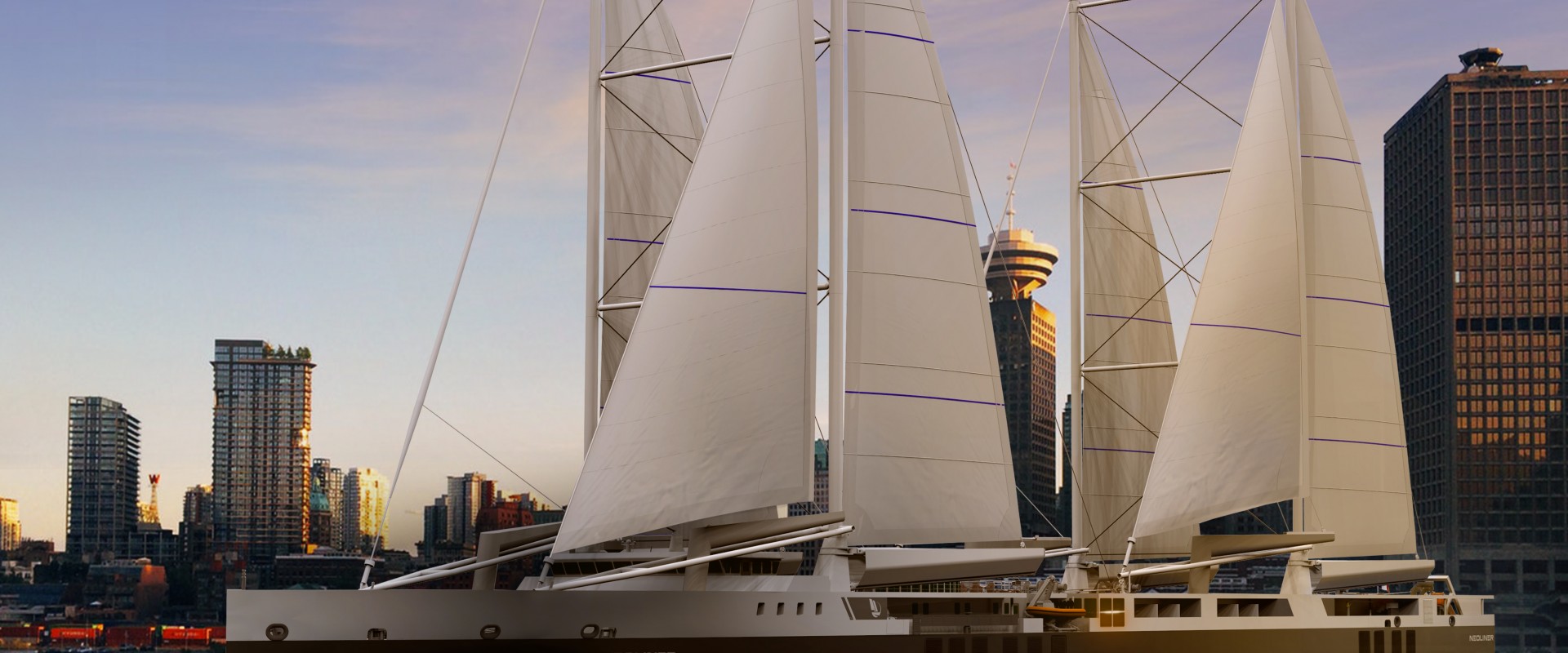
Michelin chooses the French start-up NEOLINE
Firmly committed to reducing CO2 emissions from its logistics operations, the Michelin Group recently signed a transport commitment with NEOLINE.
NEOLINE's decarbonized shipping service relies on clean and renewable wind energy as the main propulsion for its 136 m long cargo ships with 4200 m2 of sails. This is an innovative and unique solution, open to all shippers, which will reduce by 90 % the CO2 emissions related to transatlantic maritime freight transport. A first concrete step for the Michelin group on the NEOLINE pilot line from Halifax (Canada) to Saint-Nazaire - Montoir de Bretagne (France) by 2023.
The transport commitment signed by Michelin concerns the transport by sailing cargo ships of tires loaded in containers from Halifax (Canada) to Saint-Nazaire - Montoir de Bretagne (France) on the pilot line opened by NEOLINE, which will also serve the archipelago of Saint Pierre and Miquelon, as well as Baltimore (USA).
NEOLINE plans to open its transatlantic line with a first operating vessel in 2023. With the arrival of a second vessel, scheduled a year later, the Michelin group will gradually entrust NEOLINE with at least 50 % of the group's containers transported on this line.
Like the Group's sites, which are committed to the ambitious goal of zero CO2 emissions by 2050, Michelin intends to test new solutions to decarbonize its logistics operations.
« We are honored to welcome on board the Michelin Group, an emblematic French player strongly committed to innovation and sustainable mobility. This first commitment concerns Eastbound flow (from the Americas to Europe) and comes in addition to an already well-filled order book in Westbound direction (from Europe to the Americas) » says Jean Zanuttini, President of NEOLINE. « With our sailing cargo ships, we are developing a mode of transport that is more environmentally friendly, adapted to the current economic and logistical reality of shippers and not dependent on fossil fuels. »